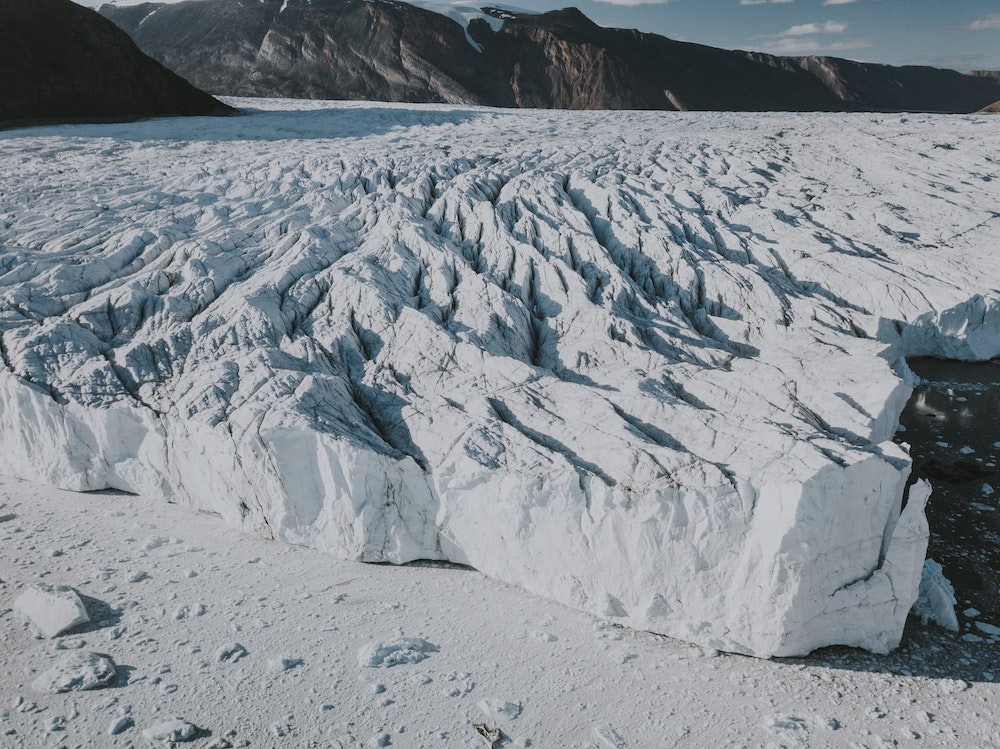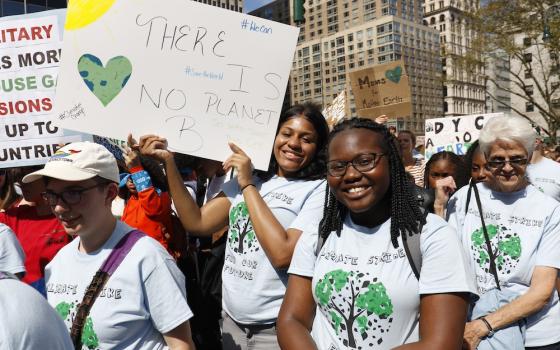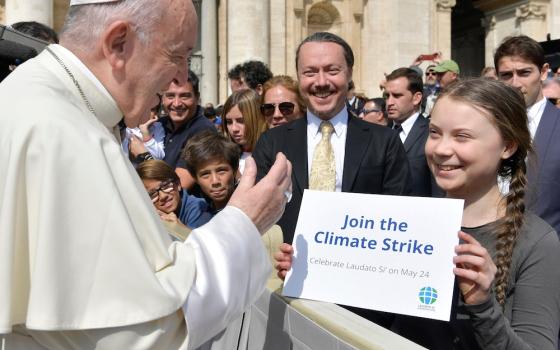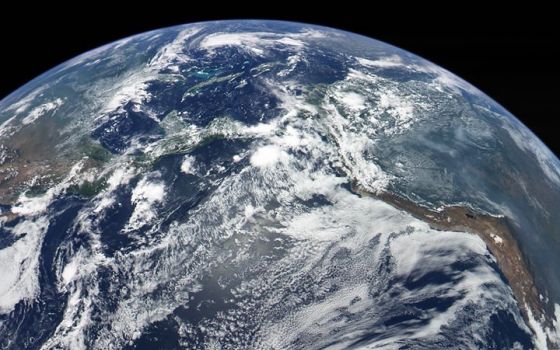
(Annie Spratt/Unsplash)
Editor's note: In his Lenten "Reflections on the Care of Creation," Fr. Emmet Farrell examines our impact on the planet and our responsibility, as people of faith, for our common home. You can sign up here to receive Fr. Farrell's reflections in your inbox every Monday, Wednesday and Friday from Feb. 17 to April 2.
See:
Rising temperatures are transforming the Arctic, melting sea ice, thawing permafrost, greening the tundra and intensifying wildfires. The 12-month period between October 2019 and September 2020 — which scientists consider the Arctic meteorological year — was the second warmest on record, exceeded only by October 2015 to September 2016.
In a 2017 interview with Christopher Joyce at NPR, Arctic scientist Jeremy Mathis said, "The environment is changing so quickly in such a short amount of time that we can't quite get a handle on what this new state is going to look like."
Because there is less polar snow and ice to reflect heat back into space, more heat is being absorbed by the ocean, resulting in unprecedented warming. In some places, polar ocean temperatures are as much as 7 degrees Fahrenheit higher than they were a few decades ago. That can change weather patterns around the globe. "Whether they be wildfires out in California or hurricanes down in the Gulf," Mathis added. "We have to think about the impacts that changes in the Arctic are having on those disruptive climate events."
The Greenland ice sheet, which is the largest outside of Antarctica and plays a key role in ocean circulation, lost 3.8 trillion tons of ice between 1992 and 2018, according to NASA. The ice is melting at seven times the melt rate of the early 1990s. That contributes considerably to rising sea levels, which could put as many as 400 million people in jeopardy by the end of the century.
NASA's Operation IceBridge monitors Arctic ice from the air, gathering data and creating detailed images. Fantastic 3D maps of the ice sheet have helped researchers locate the rare remains of Eemian ice, which dates back to before the last Ice Age, more than 100,000 years ago, when Earth was warmer. By drilling deep into the ice, glaciologists can extract ice cores that contain materials such as volcanic ash or frozen bubbles of ancient air. Those clues make it possible to reconstruct prehistoric climates, helping scientists understand how climate change could affect the planet in the future.
Advertisement
Judge:
Oceans not only contain the bulk of our planet's water supply, but also most of the immense variety of living creatures. … [M]arine life in rivers, lakes, seas and oceans, which feeds a great part of the world's population, is affected by uncontrolled fishing, leading to a drastic depletion of certain species. (Laudato Si', 40)
Christians cannot be indifferent to global warming, pollution, natural resource depletion, species extinctions, and habitat destruction, all of which threaten life on our planet. Because so many of these threats are driven by greed, we must also actively seek to create more compassionate and sustainable economies that support the well-being of all God’s creation. (Pastoral Teaching from the House of Bishops of the Episcopal Church, September 2011)
The earth dries up and withers, the world languishes and withers; the heavens languish together with the earth. The earth lies polluted under its inhabitants; for they have transgressed laws, violated the statutes, broken the everlasting covenant. (Isaiah 24:4-5)
The growing problem of marine waste and the protection of the open seas represent particular challenges. What is needed, in effect, is an agreement on systems of governance for the whole range of so-called "global commons." (Laudato Si', 174)
The Lord God took the man and put him in the Garden of Eden to work it and take care of it. (Gen. 2:15)
Act:
- Ask an engineer or science teacher to explain how Arctic melting will affect us.
- Ask one of your elected representatives about their stance on global warming and about their climate action plan for your city or state.
- Find individuals interested in studying and working on climate change in your parish or community.
- Refuse to use plastic water bottles and have your own reusable mug.






